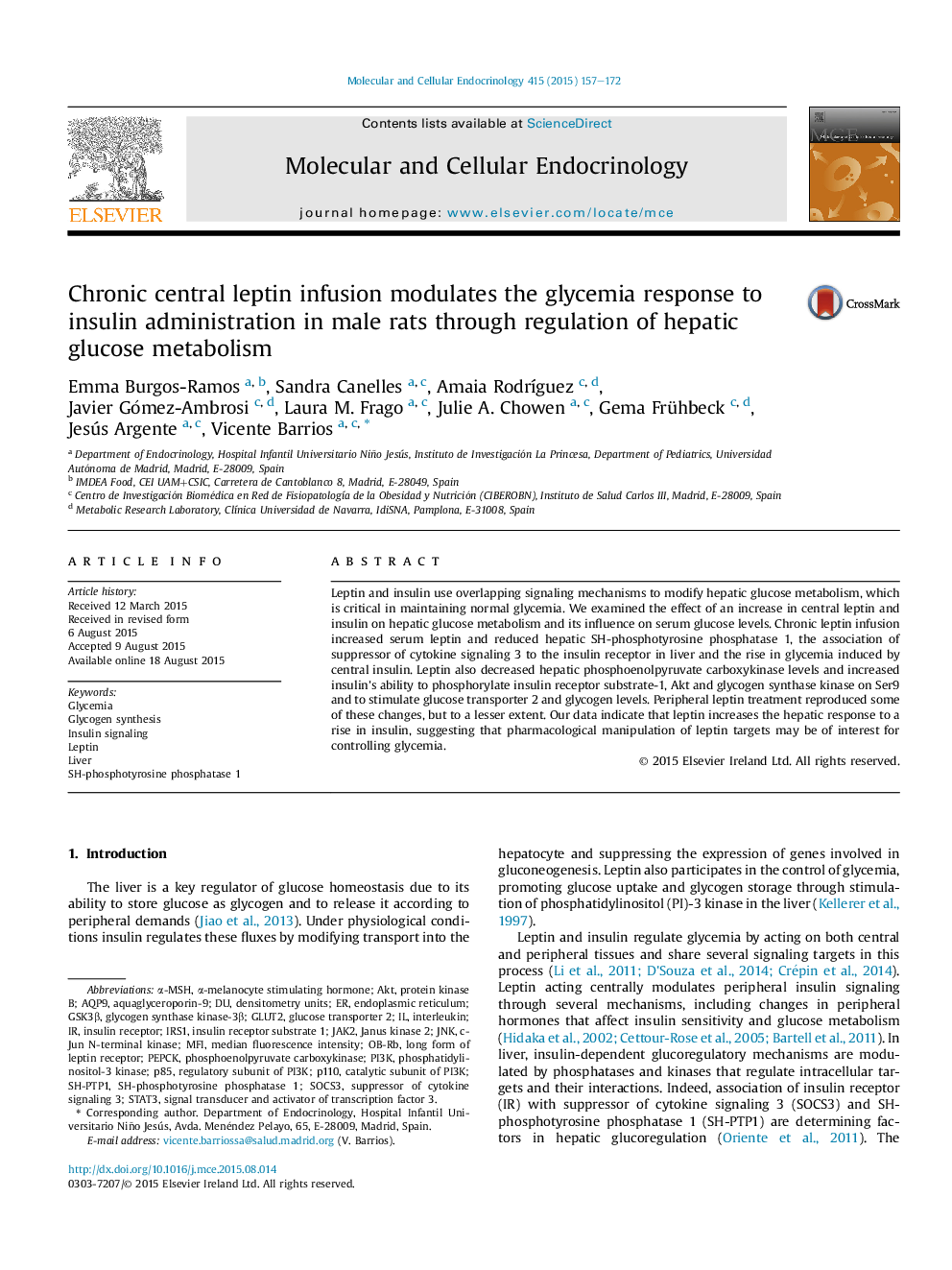| Article ID | Journal | Published Year | Pages | File Type |
|---|---|---|---|---|
| 2195705 | Molecular and Cellular Endocrinology | 2015 | 16 Pages |
•Leptin improves the hepatic response to an increase in brain insulin bioavailability.•Leptin reduces glycemia after icv insulin by increasing hepatic insulin sensitivity.•Chronic icv leptin infusion changes serum hormones related to glucose metabolism.•Leptin enhances the effect of insulin on hepatic glucose metabolism.•Leptin increases hepatic Akt activation and its nuclear localization.
Leptin and insulin use overlapping signaling mechanisms to modify hepatic glucose metabolism, which is critical in maintaining normal glycemia. We examined the effect of an increase in central leptin and insulin on hepatic glucose metabolism and its influence on serum glucose levels. Chronic leptin infusion increased serum leptin and reduced hepatic SH-phosphotyrosine phosphatase 1, the association of suppressor of cytokine signaling 3 to the insulin receptor in liver and the rise in glycemia induced by central insulin. Leptin also decreased hepatic phosphoenolpyruvate carboxykinase levels and increased insulin's ability to phosphorylate insulin receptor substrate-1, Akt and glycogen synthase kinase on Ser9 and to stimulate glucose transporter 2 and glycogen levels. Peripheral leptin treatment reproduced some of these changes, but to a lesser extent. Our data indicate that leptin increases the hepatic response to a rise in insulin, suggesting that pharmacological manipulation of leptin targets may be of interest for controlling glycemia.
